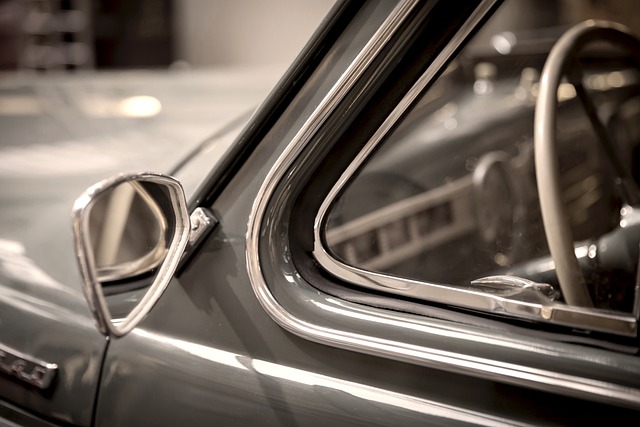When buying a used car, it's essential to look beyond the vehicle's appearance by checking its history through a VIN-based vehicle history report. These reports offer detailed information on past accidents, salvage titles, insurance claims, ownership history, and maintenance records. They help buyers identify potential issues that could affect the car's safety and longevity, including undisclosed damage or neglected recalls. This due diligence ensures that you make a knowledgeable decision, avoiding hidden problems and ensuring that your investment is both reliable and cost-effective. A used car with a clean history from such reports is more likely to be a safe and financially sound purchase, providing peace of mind for the buyer.
When selecting a vehicle, appearances can be deceiving. While a car’s gleaming exterior may captivate, its past could harbor hidden issues—from previous accidents to unaddressed recalls. In today’s market, savvy buyers armed with vehicle history services navigate this complexity, ensuring their next car is more than just visually appealing—it’s a sound investment. This article delves into the critical role of auto history checks, revealing insights through VIN numbers that unmask a vehicle’s true story. From decoding past accident records to understanding recall implications, we’ll explore how these services empower you to make informed decisions. Understanding the importance of a car’s history is paramount; it’s not just about the exterior shine—it’s about the enduring quality beneath.
- Assessing Car History: The Importance of Looking Beyond the Exterior
- Uncovering Hidden Issues with Vehicle History Services
- Decoding the VIN: What a Number Can Tell You About Your Prospective Ride
- Insurance Claims and Accident Histories: Know Before You Buy
- The Role of Recalls in Car Evaluation
- Salvage Titles: Red Flags for Potential Car Buyers
- Ensuring a Smart Investment with Auto History Checks
Assessing Car History: The Importance of Looking Beyond the Exterior

When contemplating the acquisition of a used car, a discerning buyer recognizes that the vehicle’s history is as crucial as its immediate aesthetic appeal. A car’s exterior may gleam under the showroom lights, but beneath that polished veneer could be a record fraught with red flags such as hidden accident history, unresolved recalls, or even a salvage title. These factors can significantly impact the vehicle’s safety, reliability, and overall value. To mitigate these risks, an increasing number of car buyers are turning to vehicle history services. These services offer a detailed report generated from the Vehicle Identification Number (VIN), which provides a comprehensive account of the car’s past. This includes documenting any insurance claims made on the vehicle, the frequency of ownership changes, service and maintenance records, and more. By leveraging these reports, buyers can make informed decisions, ensuring that their investment is not only visually appealing but also reliable and financially sound. It’s a diligent approach that transforms what could be a leap of faith into an educated decision, one that safeguards the buyer from potential pitfalls hidden beneath the car’s surface.
Uncovering Hidden Issues with Vehicle History Services

When considering the purchase of a used vehicle, the allure of its exterior can often overshadow potential issues lurking beneath. Thankfully, vehicle history services have emerged as invaluable tools for prospective buyers. These services offer detailed reports that uncover hidden problems, such as past accidents, flood damage, or even if the car has been marked as a salvage title vehicle. By entering the Vehicle Identification Number (VIN), buyers can access a wealth of information, including comprehensive records of any insurance claims made against the car. This data is crucial for understanding the vehicle’s history and assessing its reliability and safety. It allows consumers to make informed decisions, ensuring they are not blindsided by unforeseen issues that could arise post-purchase. With access to such detailed reports, buyers can approach the market with confidence, knowing that they are making a well-informed investment rather than falling for a car’s superficial appeal.
Decoding the VIN: What a Number Can Tell You About Your Prospective Ride

When contemplating the purchase of a used vehicle, understanding the Vehicle Identification Number (VIN) is paramount. This 17-character string serves as a unique identifier for every car and truck on the road. By decoding the VIN, potential buyers can access a wealth of information that extends far beyond the car’s make and model. A thorough VIN lookup provides detailed records that may include the vehicle’s accident history, service repairs, mileage changes, and even its original specifications. This data is invaluable as it can reveal whether the car has been involved in significant collisions or if it has undergone salvage title branding, which might affect its resale value and overall safety. Furthermore, the VIN can confirm if there are any unresolved recalls by the manufacturer, ensuring that you’re not inheriting outstanding issues when you take ownership of the vehicle. Utilizing a reliable vehicle history service allows for a more informed decision-making process, transforming what might have been a guessing game into a smart and educated purchase. It’s not just about the car’s appearance; it’s about its past, present, and potential future—all encapsulated in those 17 characters of the VIN.
Insurance Claims and Accident Histories: Know Before You Buy

When considering the purchase of a used vehicle, understanding its history is paramount. Insurance claims and accident histories can offer insights into a car’s past that go beyond what meets the eye. A history riddled with insurance claims may indicate a pattern of misuse or neglect, which could affect the car’s safety and longevity. Accidents can compromise the integrity of a vehicle’s structure and mechanical components, potentially leading to future repair costs or reduced resale value. By conducting a thorough VIN (Vehicle Identification Number) lookup, prospective buyers can access detailed reports that reveal any such incidents. These reports often include information about the severity of the accidents, the type of repairs made, and whether the vehicle has been properly repaired by certified professionals. This level of due diligence is crucial for ensuring that you are not inheriting someone else’s problems. It’s through these checks that you can make an informed decision, confident that your next car is not only aesthetically pleasing but also safe and a sound financial choice.
The Role of Recalls in Car Evaluation

When evaluating a vehicle, understanding the role of recalls is crucial. Automakers occasionally issue recalls to address safety issues or defects in their vehicles. These recalls can range from minor problems that affect a large number of vehicles to critical failures that pose immediate risks. The way a previous owner handled these recalls can significantly impact the car’s reliability and safety. A history of ignored recalls might indicate negligence, potentially leading to ongoing safety concerns. On the other hand, a vehicle with all its recalls addressed shows a responsible ownership history, suggesting that the car was well-maintained and cared for.
Prospective buyers can access detailed information about recalls through the National Highway Traffic Safety Administration (NHTSA) or equivalent international organizations. By using a vehicle’s VIN number, one can trace not only past recalls but also verify if they were properly addressed. This due diligence ensures that the car is up to safety standards and can help avoid future repairs or risks associated with unresolved recall issues. A comprehensive understanding of a car’s recall history is an essential aspect of the vehicle’s overall evaluation, providing peace of mind and informing a more informed purchasing decision.
Salvage Titles: Red Flags for Potential Car Buyers

When considering the purchase of a used vehicle, one critical aspect to investigate is the vehicle’s history, particularly whether it has a salvage title. A salvage title indicates that the car was once severely damaged, often to the point where insurance companies considered it a total loss. Such vehicles have been repaired and restored to operational condition but carry a salvage branding on their titles, which can affect their value and resale potential. Prospective buyers must be wary of cars with salvage titles as they may have underlying issues not immediately visible. These could range from structural integrity concerns to the possibility that replacement parts were substandard or improperly installed. Moreover, insurance rates for vehicles with salvage titles are typically higher due to the perceived increased risk. It’s imperative for car buyers to conduct a thorough vehicle history report through legitimate services to uncover such red flags. These reports can reveal if the car has a past as a salvage vehicle, providing peace of mind and ensuring that your next car is a reliable asset rather than a potential financial and mechanical liability.
Ensuring a Smart Investment with Auto History Checks

When considering the purchase of a used vehicle, conducting an auto history check is a prudent step to ensure that the car represents a sound investment rather than a potential source of future headaches. These checks provide a detailed report that encompasses the entire history of the vehicle, including past accidents, repair records, title history, and even the number of previous owners. By accessing these records through legitimate vehicle history services, buyers can uncover hidden issues that might not be immediately apparent during a test drive or visual inspection. These services often utilize the car’s Vehicle Identification Number (VIN) to pull accurate data from various databases. This information is invaluable as it helps consumers make informed decisions, avoiding vehicles with extensive damage from past accidents that may have been repaired hastily, or those with outstanding safety recalls still pending. By leveraging the insights provided by a thorough auto history check, car buyers can confidently select a vehicle that not only meets their aesthetic and functional needs but also offers longevity and reliability, ensuring a smart investment in their transportation future.
When considering the purchase of a vehicle, the allure of its exterior can often overshadow the importance of its past. However, as the article has outlined, understanding a car’s history through a thorough vehicle history service is crucial for informed decision-making. With a VIN number lookup, potential buyers can unveil critical information that lies beneath the surface, ensuring their next car is not only visually appealing but also a prudent investment. The insights provided by such services are invaluable, guiding consumers away from potential pitfalls and towards vehicles with a cleaner and more reliable history. In an era where knowledge is power, vehicle history checks stand as indispensable tools for the discerning car shopper.



